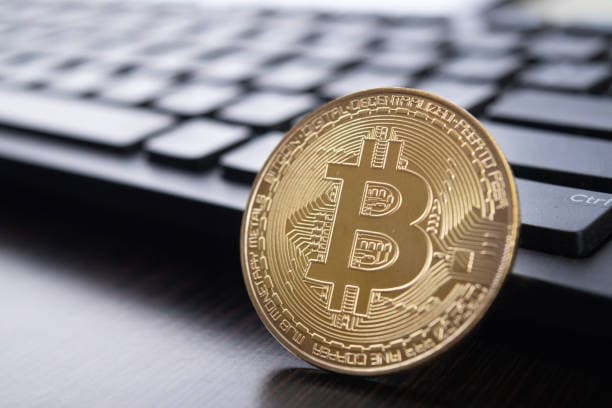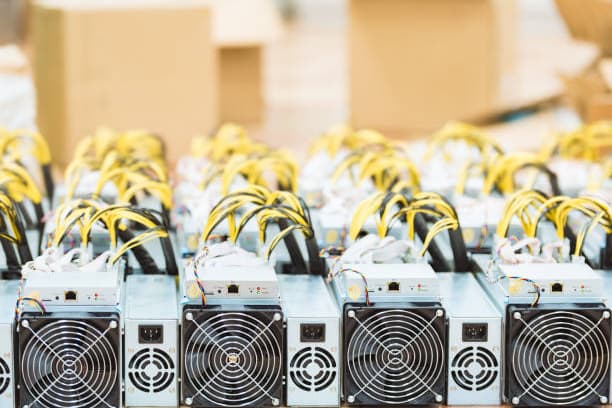As a decentralized digital asset, the safe storage of Bitcoin has become an important issue for every investor. In this article, we will introduce the main storage methods for Bitcoin and provide specific storage suggestions and security precautions to help Taiwanese users effectively prevent their assets from being lost or attacked by hackers. Learn how to choose the right wallet and protect your private keys to ensure the safety of your Bitcoin assets.

How to Keep Bitcoin: Hot Wallet vs. Cold Wallet Options
When storing Bitcoin, you first need to understand the difference between a hot wallet and a cold wallet. Hot wallets are internet-connected wallets that are suitable for daily transactions, but are vulnerable to hacking because of their internet connection. Cold wallets are offline wallets and are commonly found in the form of hardware and paper wallets. Cold wallets are not connected to the Internet, so they are more secure and suitable for storing large amounts of Bitcoin over a long period of time. Choosing the right type of wallet for your needs is the first step in securing your Bitcoin.
Hot wallet
Hot wallets are mainly software wallets (e.g. mobile apps and desktop wallets) and web wallets (e.g. wallets provided by exchanges). They are convenient, easy to operate and suitable for users to conduct frequent transactions, but they are susceptible to hacking attacks as they are constantly online. Therefore, when using hot wallets, it is important to enable dual authentication and strengthen password management to prevent account theft.
Cold wallet
Cold wallets are the best choice for storing Bitcoin, especially for long-term holders. Hard wallets such as Trezor and Ledger not only provide offline storage, but also have a high level of encryption that is effective against hacking. For smaller quantities of Bitcoin, you can also choose paper wallets, where you can print your private key and public address on paper for safekeeping.
How to Protect Private Keys: The Heart of Bitcoin Security
Bitcoin security is fundamentally based on the private key. The private key is your only proof of control over Bitcoin, and if it is lost or stolen, there is no way to recover the asset. Therefore, it is important to protect your private key.
Ways to Protect Private Keys
- Offline Storage: Store your private keys in a cold wallet to avoid contact with the Internet. Both hard and paper wallets can serve this purpose.
- Multiple backups: To prevent accidental damage or loss, it is recommended that private keys be backed up in different places and stored in waterproof, fireproof containers.
- Using the Password Management Tool: If you choose to store your private key in an electronic device, you should use a strong encryption cryptographic management tool to protect the private key. This avoids the risk of a single password being cracked.
Avoiding Common Private Key Protection Mistakes
- Do not save private keys in cloud services or unencrypted digital files.
- Don't share your private keys with others, whether they are friends or seemingly trustworthy service providers on the Internet.
Bitcoin Wallet Security Setup: Dual Authentication and Encryption
Whether using hot wallets or cold wallets, having multiple security mechanisms in place is always the key to protecting your Bitcoin assets. The most basic defense is to enable strong passwords and double authentication (2FA).
Enable Dual Authentication
Dual authentication can effectively increase the security of your account. Even if the password is stolen, the hacker still needs a second authentication to proceed. Common methods of double authentication include SMS authentication, Google Authenticator, or hardware tokens. For investors using Hot Wallet, it is highly recommended to enable dual authentication to protect your account from hackers.
Encryption Protection
To enhance the security of wallets, strong encryption is used to protect the bitcoins inside the wallet. For example, many wallet software offer an encryption option that allows the user to set a password to encrypt the private key stored on the device. Once encrypted, even if the device is stolen, it cannot be easily accessed without the password.
Avoiding Fraud and Hacking: Protecting Yourself from Theft
As a decentralized digital asset, Bitcoin lacks the protection of a central authority, which makes it susceptible to hacking and fraud. Here are some practical tips for preventing fraud and attacks.
Protect against phishing attacks
Phishing attacks are one of the most common forms of fraud on the Internet, where hackers pose as legitimate exchanges or wallet services to trick users into providing private keys or login credentials. To avoid phishing attacks, it is important to be cautious when clicking on links from unknown sources and to make sure that the websites you visit are official and encrypted with HTTPS.

Be wary of unknown freebies
Some scammers use the lure of "free Bitcoin" to attract victims, when in fact it is a scam. Such activities often require users to provide private information or transfer small amounts of Bitcoin, which ultimately results in a loss of assets. Be wary of any "free" activity that requires you to pay a fee up front.
Legal and Regulatory Issues of Bitcoin Storage
Although the legal status of Bitcoin varies globally, in Taiwan, Bitcoin is considered property and not legal tender. Therefore, users should be aware of the legal risks and obligations associated with storing and trading Bitcoin.
Compliance and Tax Issues
Under Taiwan's tax laws, you will face a corresponding tax burden if you convert Bitcoin to fiat currency. Especially for large transactions, it is advisable to keep a record of all transactions and seek tax advice from a professional if necessary.
Financial Regulatory Environment
The regulation of cryptocurrencies in Taiwan is still developing. Although there is no total ban on Bitcoin trading at this point in time, users need to pay close attention to changes in regulatory policies to avoid possible legal risks in the future.
Conclusion: Full Security for Bitcoin Assets
In conclusion, storing Bitcoin securely is not just a matter of choosing the right wallet or setting up a password, it also requires a certain level of security awareness and action on the part of the user. Whether you choose a hot wallet or a cold wallet, it is important to protect your private keys and avoid contact with the Internet. In your day-to-day use, be sure to strengthen your double authentication settings, be cautious of unknown websites and links, and always pay attention to the relevant laws and regulations. In this way, you can enjoy the wealth appreciation opportunities brought by Bitcoin with peace of mind and minimize the risks.














